“The Alliance for Digital Research on Early Latin America (ADRELA) is an interdisciplinary, transnational scholarly collective that supports digital research related to colonial and nineteenth-century Latin America.”
Resources:
Events
Practitioner Directory
Project Directory
Listserv
“The purpose of the Association for Documentary Editing (ADE) is to support, facilitate, and promote the creation and use of edited texts and other acts of recovery through cooperation and exchange among those concerned with uncovering, contextualizing, sustaining, and preserving primary source materials, texts, and cultural artifacts—including editors, teachers, students, interdisciplinary scholars, librarians, archivists, genealogists, and others.”
Resources:
Annual Conference
Membership Directory
Scholarly Editing (an annual, open-access journal)
Membership Newsletter
Prizes and Awards
The Bibliographical Society of America (BSA) is an international, scholarly organization for the “study[ing], learn[ing], and shar[ing of] knowledge derived from the close physical analysis of material artifacts in interdisciplinary and interprofessional settings: in libraries, universities, museums, the book trade, and as collectors.” More broadly, the BSA community is interested in discussing “the media and technologies that carry texts to readers, [with a focus] on the relationship between form and content.”
Resources:
Annual Conference
BibSite, “an open access digital repository for discovering and sharing bibliographical research and pedagogical materials”
Events, Event Recordings, and Event Funding
Fellowships and Awards
Membership Directory
Papers of the Bibliographical Society of America, a quarterly journal
Public Monthly Newsletter
“[The Center for Archival Futures is] interested in building partnerships focused on student opportunities and research collaborations focused on topics in archives and digital curation, broadly conceived, including:
- Science and technology studies
- Digital collections, digital archives, and data repositories
- Community archives
- Data curation across disciplines
- Decolonial and critical approaches to library, archive, and museum research and practice
- Digital humanities
- Knowledge infrastructures, knowledge organization and representation”
Resources:
Monthly events
“The Center for Black Digital Research, #DigBlk, is committed to preserving Black organizing histories in the long nineteenth century and to building future generations of Black scholars who advocate for social justice in higher education, repositories, museums, and beyond. #DigBlk is a public-facing research center committed to bringing the histories of nineteenth-century Black organizing to digital life through collaborative scholarship and project-based research. The Center is home to the award-winning Colored Conventions Project, Douglass Day, and the newly-launched early Black Women’s Organizing Archive.
“#DigBlk provides opportunities for students, postdoctoral fellows, and faculty to join our research teams and work with an interdisciplinary, cross-institutional team of 30-35 members who meet regularly on collaborative research that includes digital archive-building, crowd-sourced transcription projects, community-arts partnerships, and scholarly and digital editions.”
Resources:
Fellowships, Visiting Scholar Programs, Mentorship Programs, and Research Assistant Positions
Events, including Write-On-Site Virtual Writing Space
Teaching Resources
Douglass Day Community Transcribathon
“The Digital Ethnic Futures Consortium (DEFCon) is a national consortium of digital ethnic studies practitioners led by Roopika Risam (Salem State University), Sonya Donaldson (New Jersey City University), Jamila Moore Pewu (California State University, Fullerton), Toniesha Taylor (Texas Southern University), and Keja Valens (Salem State University). Through events, professional development, networking opportunities, and a regranting program, we support the work of faculty, librarians, and students who are undertaking research and teaching at the intersections of digital humanities and ethnic studies fields.”
Resources:
Events
Grants for course and curriculum development
Reading group
Recommended tools and readings
“The Digital Humanities Summer Institute (DHSI) is an annual digital scholarship training institute that takes place at the University of Victoria. Every summer, DHSI brings together faculty, staff, and students from the arts, humanities, library, and archives communities as well as independent scholars and participants from areas beyond. DHSI provides a community-based environment for discussing and learning about new technologies and how they influence teaching, research, creation, and preservation in different disciplines. Around 800-900 participants attend this time of intensive coursework, seminars, and lectures, where participants share ideas and methods as well as develop expertise in advanced technologies.”
Resources:
Annual workshops
Listserv
“The Recovery Hub for American Women Writers supports projects recovering the work of women writers by providing digital access to forgotten or neglected texts and/or extending them with network mapping, spatial analysis, multimedia storytelling, innovative contextualization, and the distant reading of massive datasets. The Recovery Hub explores the intersecting relationships between feminist practice, content, and technical specifications with an awareness of the ways that the design and implementation of technology can exclude and objectify people. The Hub fosters collaboration, mentorship, and community-building among women working in the digital humanities while seeking feminist and decolonial approaches to the creation, curation, design, sharing, and archiving of digital content.”
Resources:
Consultation
Events
Learning Resources (Project Planning Guides, Bibliographies, Glossaries)
Pedagogical Support
“Recovering the US Hispanic Literary Heritage (‘Recovery’) is an international program to locate, preserve and disseminate Hispanic culture of the United States in its written form since colonial times until 1980. The program has compiled a comprehensive bibliography of books, pamphlets, manuscripts and ephemera produced by Latinos. The holdings available at the project include thousands of original books, manuscripts, archival items and ephemera, a microfilm collection of approximately 1,400 historical newspapers, hundreds of thousands of microfilmed and digitized items, a vast collection of photographs, an extensive authority list and personal papers. In addition, the program has published or reprinted more than 40 historical books, two anthologies and nine volumes of research articles. The program organizes a biennial international conference and has some five thousand affiliated scholars, librarians and archivists. Recovering the US Hispanic Literary Heritage is the premier center for research on Latino documentary history in the United States.”
Resources:
Biennial conference
Blog
Catalog of published works
Pasados, a biennial, open-access journal
Research grants
YouTube channel
“The Society for Textual Scholarship is an international organization of scholars working in textual studies, editing and editorial theory, electronic textualities, and issues of textual culture across a wide variety of disciplines. The Society welcomes all those whose work explores the ideological structures and material processes that shape the transmission, reception, production, and interpretation of texts.”
Resources
Annual Conference
Textual Cultures: Texts, Contexts, and Interpretations (a biannual, open-access journal)
Prizes and Awards
“The Society for the Study of American Women Writers (SSAWW) was established in 2000 to promote and advance the study of American women writers through research, teaching, and publication. It is the goal of the Society to strengthen relations among persons and institutions both in the United States and internationally who are undertaking such studies, and to broaden knowledge widely among the general public about American women writers.”
Resources:
Triennial Conference
Legacy: A Journal of American Women Writers
Listserv
“The Teaching with Primary Sources (TPS) Collective is an online hub that brings together resources, professional development and support for those who teach with primary sources, including librarians, archivists, teachers, cultural heritage professionals, and anyone who has an interest in using primary sources in an educational setting.”
Resources:
Annual Unconference (TPS Fest)
Blog, Case Studies, and Other Learning Resources
Listserv


